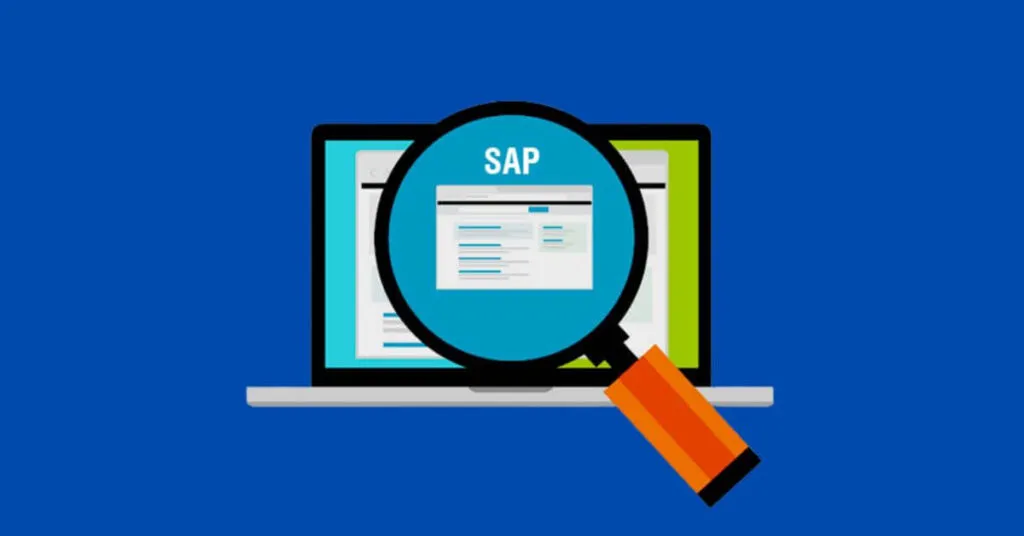Importance of SAP Regression Testing – SAP stands for System Applications and Products in Data Processing. SAP is also the name of Enterprise Resource Planning (ERP) software and the name of a software company as well. SAP is #1 in the ERP market of ERP. SAP has more than 75000 customers in 120 countries. Moreover, SAP offers other ERP products like SAP S/4HANA cloud.
The SAP brings numerous updates so that organizations can continue to create customizations and modifications as per their needs. SAP regression testing is one of the best ways to manage all these updates and modifications. But still, some typical issues exist with the procedure of SAP regression testing.
Table of Contents
Regression Testing in SAP
Regression testing in SAP examines the product quality when the configuration changes, bug fixes, or releases in the SAP applications. It ensures existing functionalities continue to work after the changes. SAP regression testing helps build up the software quality and prevents production failures.
Challenges Associated with SAP Regression Testing
SAP testing is a challenging endeavor. The changing landscape of SAP increases the regression suite over time. The manual testing of the SAP regression suite could take a lot of time to complete.
The system of SAP is complex as it comprises multiple modules, integrations, and interfaces, and performing regression testing can be a tedious and time-consuming process.
SAP releases yearly updates and other minor updates that make regression testing quite daunting. Regression testing in SAP is carried out with real-world data. The data user needs to be accurate and consistent. So, the challenge may arise when data is migrated from the legacy system to SAP.
Some organizations utilize customized SAP applications, and these customizations can make regression testing challenging.
The changes take place in the SAP applications when it is integrated with other systems. In this scenario, regression testing can be a daunting task.
While performing the SAP regression testing, a replica of the production environment is required. This can make the process of regression testing more complex because the production environment comprises a lot of data and complex configurations.
Regression testing is resource intensive because it requires significant time and resources. Organizations with limited resources can face difficulty in carrying out efficient regression testing.
Overall, SAP regression testing solves many problems, but remember there are some challenges also associated with it. However, with a well-defined testing strategy, effective regression testing can be carried out.
How to Effectively Carry Out the SAP Regression Testing?
Regression testing is a crucial part of the software development life cycle and is crucial for the systems like SAP. Below given are some tips for carrying out the SAP regression testing.
Define the Testing Range
Before performing the regression testing, define the testing range. Identify the testing areas that need to be tested and special mark those areas that need comprehensive testing. This will help in strategizing the test cases and prioritizing the important test suites.
Construct Test Cases
Prepare a comprehensive set of test cases that can enable you to verify the performance, functionality, and usability of the system. Make sure the test cases should cover all the important test case scenarios of business and related processes.
Use Test Management Tools
The test management tools better serve the purpose of SAP testing. They help manage the test cases and track the progress. Effective results can be achieved with testing tools.
Prioritize the Test Cases
Based on the criticality and the effect on the system, prioritize the test cases. This will help in minimizing the testing time, and high-risk areas can be managed well.
Include the Business Users
The involvement of business users in the process of testing provides valuable feedback regarding the system’s behavior and functionality. They can also help in knowing the system gaps.
Record and Document the Test Results
Record the test outcomes and document them. This will help track the defects easily. If, in the near future, any fixes are done, then retesting will be much easier.
Perform Continuous Testing
In order to determine the functionality of the system, carry out continuous testing. It will help the defects areas and minimize the overall testing cost.
Choose Opkey for the Effective Regression Testing in SAP
It is a completely codeless test automation platform. It means it makes the testing process. Additionally, non-technical users can also take part in SAP regression testing.
It uses NLP (Natural Language Processing) that permits the building of test cases in the English language. So, anyone who possesses knowledge of SAP functions, workflows, or business processes can improve the coverage and quality of test cases.
It supports end-to-end automated testing across multiple technologies, such as APIs, ESBs, etc., and supports these technologies in various phases of the development lifecycle.
So, if you want to streamline the process of SAP regression testing, then Opkey is one of the great platforms. Moreover, Opkey provides the Opkey University, which enables the team to enhance their skills in test automation and become Opkey certified in a self-taught environment.


